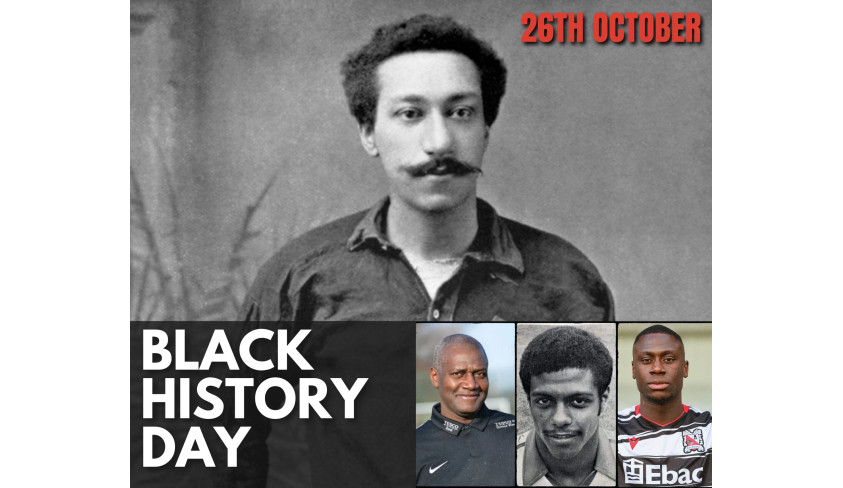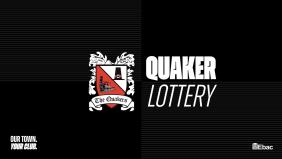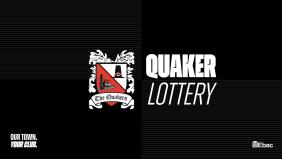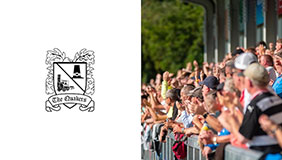Short series on prominent players: Arthur Wharton
As part of Black History Month, this Saturday we will be celebrating our own Black History Day, and paying tribute to all of the black players and managers who have played and worked for the club since it was formed in 1883. We'll be staging a minute's applause before Saturday's game in honour of all the black players and managers who have appeared for us.
Later in the week, we’ll be remembering several players, but we start with the man who paved the way for all of them to follow – Arthur Wharton who is a true icon in Sport.
Arthur “Kwame” Wharton was born in Jamestown, Ghana in 1865.
In 1883, he moved to England to train as a missionary at Cleveland College, Darlington. It was there he began his amazing sporting careers, competing as a ‘gentleman amateur’, but soon abandoning this in favour of becoming a full-time athlete.
Arthur became the first official fastest man when he ran a record time of 10 seconds dead in the 100 yards (now metres) on the 3rd July 1886 at Stamford Bridge, London. The world record would stand for over 30 years.
Arthur went on to become the world’s first black professional footballer. He also later became a cycling champion, professional cricketer and a rugby player.
Arthur’s achievements in the face of adversity, his contribution to the communities he lived in and the scale of his successes make him a unique figurehead. He tackled issues in his lifetime that are still very relevant today.
In 1930, Arthur died penniless in the Springwell Sanatorium in Balby and was buried in an unmarked grave in Edlington Cemetery. In May 1997, Arthur’s grave was given a headstone after a campaign by anti-racism organisation Football Unites Racism Divides for recognition of his achievements.
Arthur’s sporting prowess was first spotted at Darlington Football Club, where he was selected to play as goalkeeper. At Darlington, he was described as ‘magnificent’, ‘invincible’ and ‘superb’.
There was no league championship then and the FA Cup was the main competition, along with district and county matches.
During the 1885-86 season, whilst still a Darlington player, Arthur was selected for the prestigious Newcastle and District team. At that time, it was the best in the city and far superior to the West End and East End sides which later combined to form Newcastle United.
Like many other great goalkeepers before and after him, he gained a reputation for being eccentric.
Apparently, he would wait in a crouching position at the side of the goal before rushing out to save the ball.
He was spotted by Preston North End and joined them as an amateur, and was part of the team that reached the FA Cup semi-finals in 1886-87. Though part of “The Invincibles” of the 1880s, he left Preston in 1888 to concentrate on his running, and therefore was not part of the team that subsequently won the double in 1888-89.
He returned to football in 1889, joining Rotherham Town, signing as a professional. In 1894, he moved to Sheffield United where he was understudy to regular first-team goalkeeper William “Fatty” Foulke.
During the 1894-95 season, Arthur played three games for Sheffield United, against Leicester Fosse, Linfield and Sunderland, the Sunderland match being a First Division game, made him the first black/mixed race player in the world to play in the top flight.
In 1895, he left for Stalybridge Rovers but after falling out with the management moved to Ashton North End in 1897.
Ashton went bankrupt in 1899 and Arthur returned to Stalybridge Rovers, before seeing out his career playing for Stockport County of the Second Division in 1901-02.
The FA have named Arthur as one of their ten best black icons
Away from football, on 3rd July 1886 at Stamford Bridge, Arthur was the first sprinter to run 100 yards in 10 seconds in authentic championship conditions.
He was also the first black Amateur Athletic Association (AAA) champion. Arthur proudly received the Prince Hassan Cup, a trophy presented to the winner of the 100 yards at the AAA.
Arthur also played cricket for Cannock and Darlington Cricket Club, but it was in the Yorkshire and Lancashire leagues where he earned a summer living.
From 1889, Arthur played cricket professionally during the football close season. Greasebro’ hired his services for six seasons from 1889 to 1895. He signed as a professional for Stalybridge Cricket Club in 1896 and within weeks he was their star attraction.
Despite this, he did not play for them after the 1896 season and for the rest of his time in Lancashire played little or no cricket.
After leaving professional football in 1902 and returning to Yorkshire, cricket took pride of place in Arthur’s affections. In 1914, Arthur was offered a job coaching cricket in County Durham, which he turned down due to a lack of work to supplement his wages.
Nevertheless, Arthur continued playing cricket and running. Even in his fifties an eyewitness reported that “he could catch pigeons”.
The Premier League have recognised Arthur on their website
https://www.premierleague.com/news/4149575
You can learn more about Arthur here on the Foundation website
https://arthurwhartonfoundation.org/
DFC are proud members of Kick It Out -- more details here:









-article-list.jpg)




